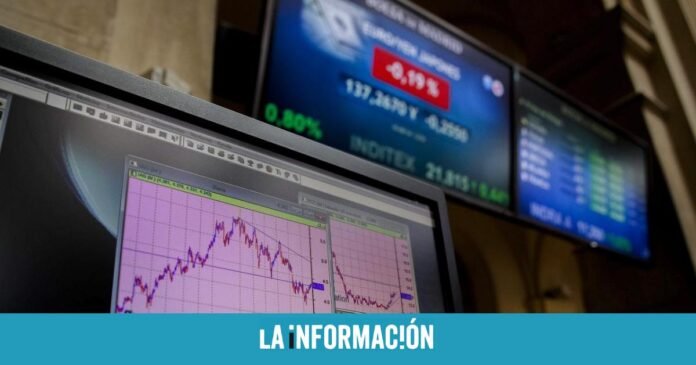When investing in the stock market, one of the keywords is diversification. It is an investment strategy that is based on the idea that it is less risky to buy a little of many things than a lot of one thing. In other words, diversifying consists of distributing the money among several different investments. It is possible to apply this strategy with different investment products, but, among others, ETFs stand out.
Listed funds -known as ETFs (Exchanged Traded Funds) The CNMV affirms that they offer the possibility of participating in the evolution of the main markets, without the need to invest in each and every one of the values that make up the indices reference. In addition, ETFs stand out for offering an operation at a low cost. Expenses are generally lower than those of traditional investment funds.
On many occasions, ETFs aim to replicate the behavior of a certain reference index. But, in addition, it is also possible to invest in an inverse ETF, that is, an index whose evolution is contrary to the market trend. And another type of ETF are the leveraged ones, those that replicate the stock index in a certain proportion or leverage.
Through an authorized intermediary
As with other products, to invest in an ETF, in the first place, it is necessary to resort to a financial intermediary that can be banks, savings banks, companies or securities agencies. In addition, the CNMV also highlights that management companies can also market them, “either directly or through agents or representatives”. In any case, they must be authorized by the CNMV. This can be verified in the Official Records of the financial regulator.
And once an intermediary has been chosen, you must open a securities account to operate. From there, the investor will be able to buy or sell shares through orders. The investor may buy or sell shares through orders that are transmitted to the intermediary by telephone, in person at a branch or also through the Internet. These orders can be made while the electronic stock market is open -just like the shares-. In its case, the hours are from 8:30 a.m. to 5:35 p.m., made up of an opening auction period between 8:30 a.m. and 9:00 a.m. and an open market period between 9:00 a.m. and 5:35 p.m.
For “risk prone” investors
The National Securities Market Commission (CNMV) explains that ETFs “are usually variable income funds, except those that replicate fixed income indices, which is why they generally have high volatility and are suitable for risk-prone investors.” That is, they are exposed to great volatility. This implies that, in bear market situations, significant losses may be recorded in the investment made.
In addition, the CNMV warns of the measure called “monitoring error or track error” which is used to assess the proximity with which the fund follows the index, comparing both trajectories. “Normally, this error tends to be small; the higher it is, it will indicate that the ETF follows the index less faithfully”, underlines the financial regulator.
When investing in ETFs, liquidity risk must be taken into account, which will depend on the level of liquidity of the assets in which they invest. In this case, the shares in the ETFs can be traded –buy or sell- at any time during the stock market trading hours.
Likewise, the investment policy of some funds entails investing in securities that incorporate a credit or counterparty risk. The CNMV warns that the ETF may be affected “if the security or counterparty cannot meet its payments or is late in them.” Likewise, ETFs that track an index denominated in a currency other than the euro also incorporate a risk derived from exchange rate fluctuations.

